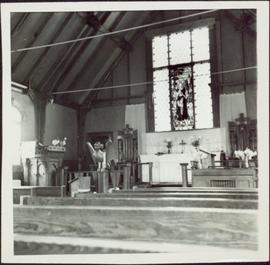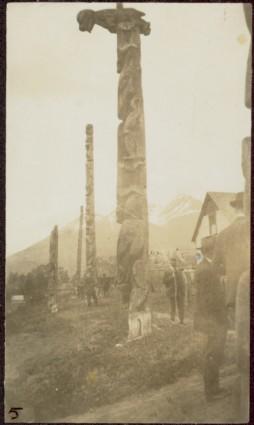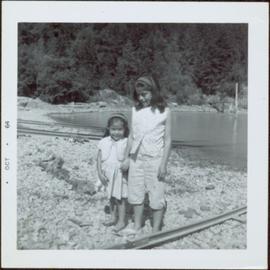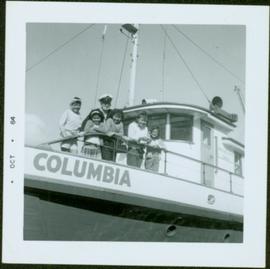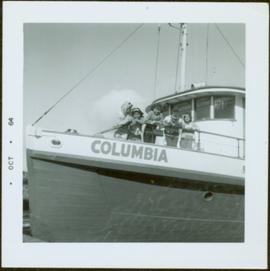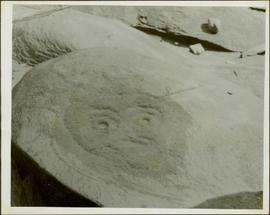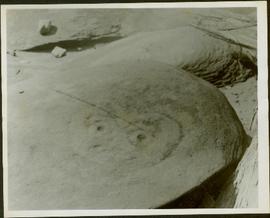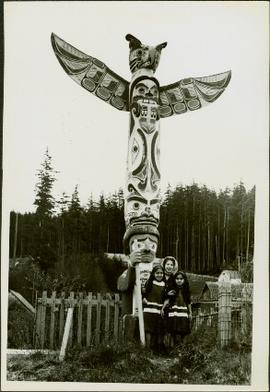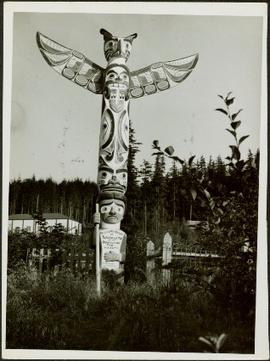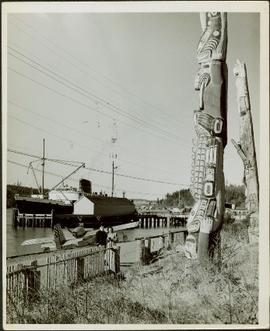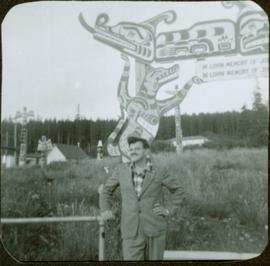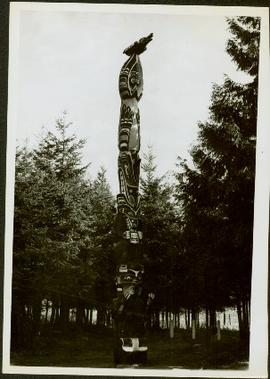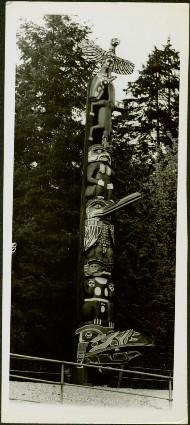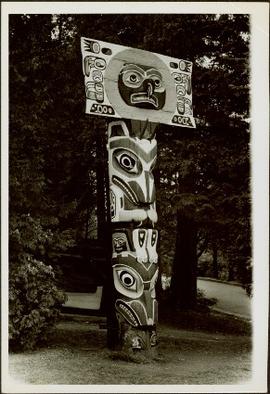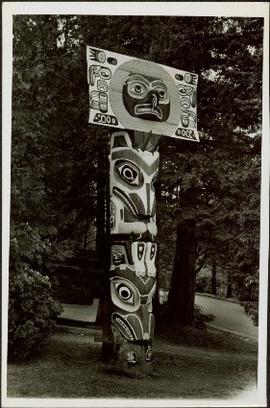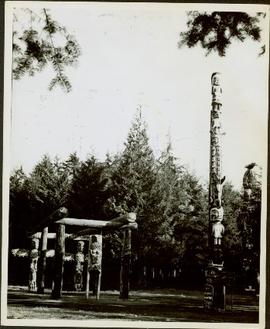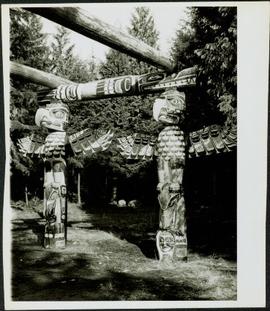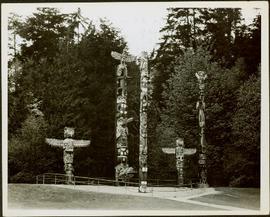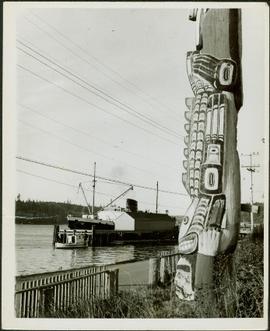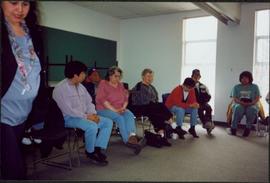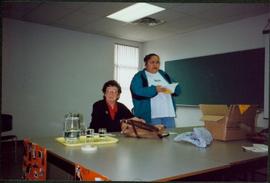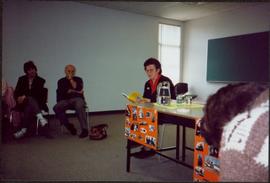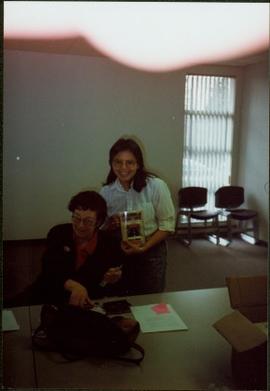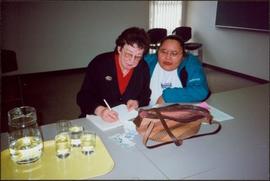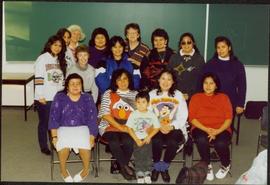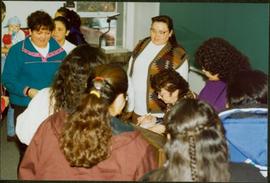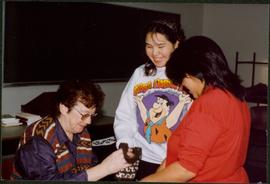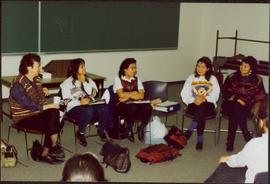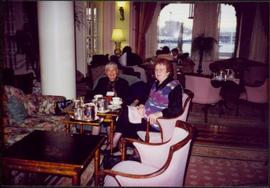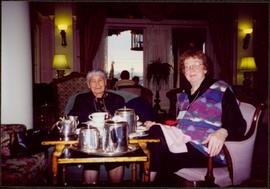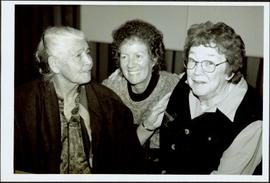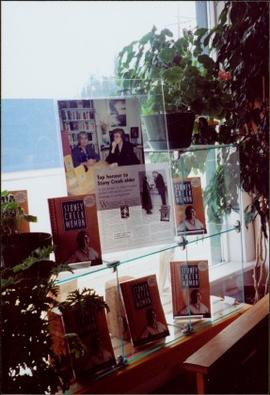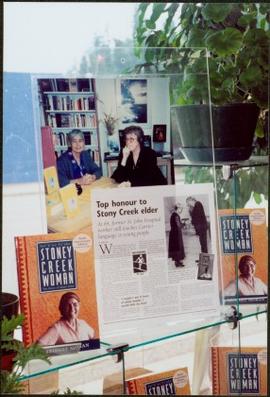Item is a audio interview recorded by Bridget Moran with Jimmy, Rosie, Nancy, and Madeline.
Audiocassette Summary
00’ 05” Continuation of interview with Jimmy. Jimmy says his grandfather is French, not German, like Justa thinks. Moran and Jimmy continue to talk about the history of his grandparents. Jimmy continues to talk about his family history. They talk about the history of their last name, Monk.
12’ 08” Interview changes to Rosie. Moran asks Rosie about her siblings and other family history. Moran asks about the history of their last name, Monk. She believes her descendants are French. They continue to talk about her family history.
19: 22” Moran asks Rosie about the time Justa murdered John. Rosie talks about the situation candidly. She talks about John’s family life.
26’ 30” Moran asks Rosie about attending residential school. Rosie says school was alright for her, that they looked after them. She came home after six years.
28’ 30” Rosie talks about traveling around with her father because he worked many different jobs.
29’ 55” Rosie talks about getting married, how she got to choose her own partner, instead of having it arranged. She discusses her children.
32’ 05” Moran asks if Rosie had a good childhood. Rosie says yes, but her parents were strict. She remembers her father having to pay a land tax because they did not live on reserve land. She continues to talk about her childhood.
37’ 16” Rosie talks about life in residential school. Nancy says the nuns were kind; that they had to punish them if they spoke their native language.
38’ 50” Interview changes to Nancy. Moran asks about the history of their last name, Monk. They talk about her family history.
45’ 43” Moran asks Nancy about the time Justa killed his brother, John. Nancy talks about what she can remember.
47’ 32” Moran asks Nancy about the death of her brother, Teddy. She tells Moran the story she was told by the police.
49’ 34” Moran asks Nancy when she went to residential school. Nancy talks about having convulsions, so only spent two years there, then came home. When she was feeling better, she went back for another two years. She said her time there was not that bad, but she was homesick and lonely.
53’ 16” Moran asks Nancy if she had a good childhood. Nancy tells her she did, that they did everything for their parents.
56’ 07” Interview changes to Madeline. Moran asks about the history of their last name, Monk. Madeline does not know much about it. They continue to talk about the history of the family.
1:02’ 45” Madeline tells Moran about how she knocked Justa out with a block of ice because he was teasing her when they were children. Justa was a big tease, she says. Madeline says that Justa collected a box full of ‘treasure.’
1:09’ 10” Moran asks Madeline about her mother and how much she sewed for other people.
1: 10’ 44” Moran asks about when Madeline went to residential school. She tells Moran that she liked it there. Those who went there have discipline, she says.
1: 12’ 55” Madeline tells Moran that her parents were strict. She talks about being punished when breaking the rules, much like being at the residential school. They return to discussing residential school.
1: 17’ 55” Moran asks Madeline about what she remembers about the trips between Portage and Fort St. James. She talks about traveling by canoe once with her grandfather.
1: 20’ 33” Moran tells Madeline what she plans to write about in the book, particularly the first chapter dealing with the family history and life before the road being built to Portage.
1: 23’ 25” They return to talking about the family history, including aunts. They talk about her siblings.
1:30’ 07” Moran asks about Justa Hanson, the man Justa was named after. He was living in Tachie at the time Justa was born.
1:32’ 40” End of tape.
